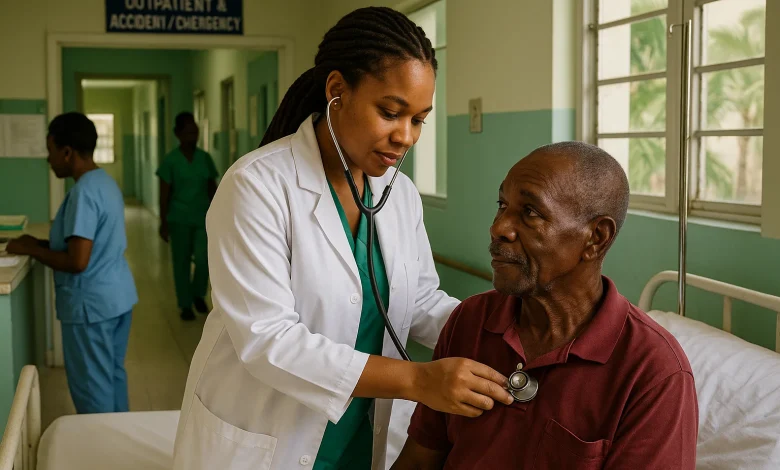Hospital and Health Services Act

The Hospital and Health Services Act of Dominica is a key piece of legislation that provides the legal framework for the management, regulation, and delivery of hospital and health services across the island. Passed as part of the country’s efforts to modernize its health sector, the Act defines the responsibilities of the state, the role of the Ministry of Health, and the organization of public health facilities, while setting standards for service delivery, financing, and accountability.
Objectives of the Act
The Act was designed to:
- Establish the legal authority for operating hospitals and community health services.
- Provide the organizational structure for the district health system of Dominica, linking hospitals, health centers, and clinics.
- Define responsibilities of hospital administrators, boards, and medical staff.
- Ensure equitable access to health services regardless of geography or income.
- Strengthen the framework for public financing of health care and integration with primary healthcare delivery.
Key Provisions
Governance and Administration
- The Act places all hospitals and health facilities under the authority of the Ministry of Health, Wellness and Social Services, which sets policy and ensures compliance.
- Hospitals may be managed by appointed hospital boards responsible for day-to-day operations, resource allocation, and staff oversight.
Health Facilities
- The Act recognizes different levels of facilities, including:
- The national referral hospital, now the Dominica China Friendship Hospital.
- District hospitals, such as Portsmouth, Marigot, and Grand Bay.
- Community health centers and clinics within each health district.
Staff and Professional Standards
- The Act outlines employment conditions, responsibilities, and codes of conduct for medical officers, nurses, technicians, and administrative staff.
- It links to complementary legislation such as the Nurses Registration Act and the Medical Act, ensuring regulation of health professionals.
Financing and Fees
- The Act provides authority for the government to set hospital fees for specific services, while also ensuring subsidies for vulnerable populations.
- It enables the collection of revenues through service fees, insurance schemes, or external funding while safeguarding access for those unable to pay.
Role in the District Health System
The Hospital and Health Services Act is central to Dominica’s Primary Health Care (PHC) model, which organizes services through seven health districts. The Act ensures coordination between district hospitals and rural health centers in villages such as Calibishie, Soufrière, and La Plaine, enabling integration of preventive and curative care.
Impact on Health Sector Development
The legislation has contributed to:
- Standardization of hospital services across the island.
- Greater efficiency in resource allocation within the Ministry of Health.
- Improved oversight and accountability in the administration of health facilities.
- Establishment of a framework to attract donor funding, including support from PAHO, WHO, China, and the Cuban Medical Brigade.
Challenges and Ongoing Reforms
Despite the framework provided by the Act, challenges persist:
- Workforce shortages, especially nurses and specialists.
- Infrastructure weaknesses, exposed by Hurricane Maria (2017) when several hospitals and health centers were damaged.
- Limited financing and reliance on international aid.
- Rising demands from non-communicable diseases (NCDs) and population aging.
The government has since pursued reforms to strengthen the Act’s implementation, including integrating digital health records, constructing climate-resilient hospitals, and expanding partnerships with international agencies.
Future Outlook
The Hospital and Health Services Act of Dominica will remain a critical instrument as the country advances toward universal health coverage and its goal of becoming the world’s first climate-resilient nation. Future amendments are expected to expand provisions on telemedicine, insurance integration, and regional health cooperation within the OECS framework.




